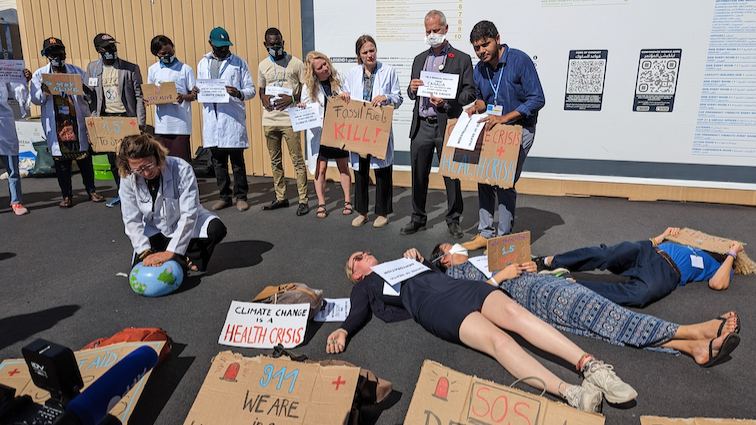Opinion - November 17, 2022
‘Eco-anxiety’ is not the illness, inaction is


Written by Bertrand Piccard 4 min read
COP 27 brings out a clear observation: CO2 emissions will exceed their record level in 2022. Does this announcement risk increasing the syndrome of ‘eco-anxiety’ we are more and more talking? Certainly, but that is not the problem.
To say, as is often said today, that eco-anxiety is the mental illness of the 21st century, amounts to denying the reality of climate change. Faced with such a real danger, are we wrong to be afraid, to be frightened by the situation and frustrated not to see the decision-makers adopt urgent measures? Eco-anxious people think they are sick but this is not the case. What worries me, on the other hand, are the individuals who continue their little life as if nothing had happened, who are not anxious about the disaster that is brewing or who think that enough has already been done. They are the ones who are the sickest and who need to be treated, because they have no idea of the reality of the world.
As a psychiatrist and environmentalist, I too am eco-anxious. If I did not feel that anxiety, I would not be spending all my time trying to save the environment. And this, in particular, is the reason that led me to create the Solar Impulse Foundation.
Thus, the question is not to know how to cure eco-anxiety, as one would cure a neurosis or a psychosis, but how to avoid it for it to paralyze us in a way that it imprisons us in depression. Because the real disease is eco-depression: suffering made up of powerlessness, guilt and sadness, which depicts a total absence of future and persuades us that it is no longer any use to act in any way possible. Inaction is the illness, not eco-anxiety!
The feeling of helplessness, which causes so much suffering in eco-anxiety, will diminish only if it becomes a spur to react, to wake us up and those around us. We will regain our vital energy as soon as we decide to act to obtain a result, however small, rather than complaining. When I speak of taking action, it is not with the aim of saving the world on our own (despair would only be greater), but to strive to improve what we can in our own life, to describe solutions on social networks, to encourage our family and friends to change, to contact a journalist we know or a local elected official.
What is discouraging is trying to unsuccessfully take action that is not possible at our own level. An individual, let alone a child, cannot contribute to change in the same way as a business leader or a prime minister. Small actions, adapted to the level of each, are however enough to create a favorable dynamic.
To children who worry their parents with their eco-anxiety, it must be explained that life has always been a fascinating and difficult adventure, with ups and downs. Humanity has always known crises: in the time of the Egyptians, Greeks, Romans, in the Middle Ages and even more recently, there have been wars, revolutions, epidemics... and men have succeeded each time in transforming into evolution what they believed to be the end of the world. Today, let's show young people which are the promising and inspiring professions in which they can make a difference, whether in the fields of ecological efficiency, renewable energies, carbon-free constructions, computing to design smart grids, getting involved in politics or working in the media.
I often think back to a poignant image from the Los Angeles riots of the 1990s, showing two store owners devastated and looted. One was sitting in the rubble, crying with his head in his hands. The other, armed with a broom, was putting his shop in order to reopen it as soon as possible. That's resilience. I was a medical student when I saw this photo in a newspaper and it was this picture that oriented my choice to devote my doctoral thesis to "Learning through Trials: the revealing aspect of the accident, sickness and misfortune”. What can we learn from life's great disasters? we must always keep in mind that even when we are not responsible for what happens in our existence, we can become responsible for what we do with it.
First published in La Tribune and Le Temps
Written by Bertrand Piccard on November 17, 2022


